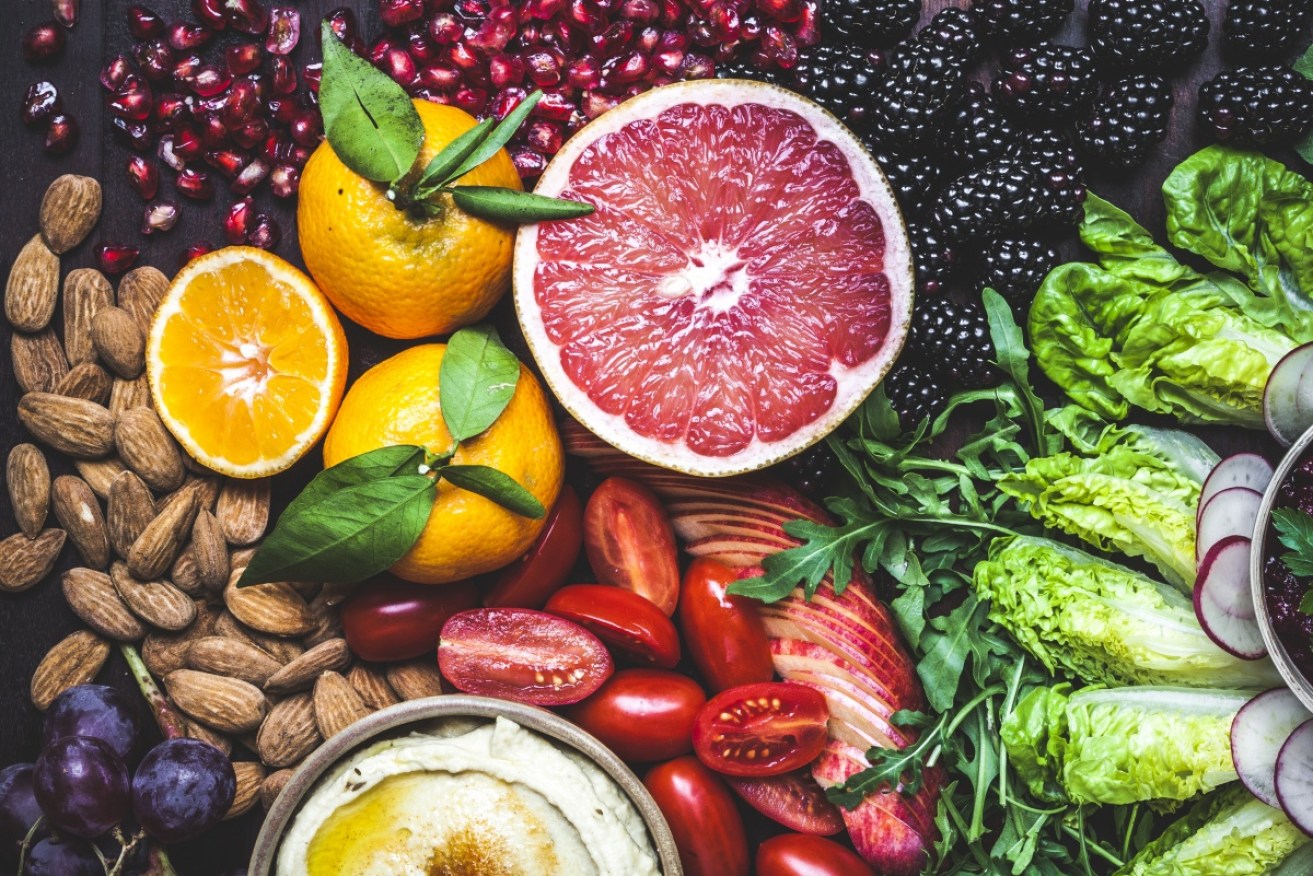Why upmarket organic produce does not always mean ‘healthier’, ‘better value’


How to avoid being tricked and ripped off by fake 'organic' claims. Photo: Getty
As Australia’s growing appetite for natural produce infiltrates mainstream markets, consumers have been warned that the ‘organic’ label doesn’t necessarily adhere to organic certification standards
Supermarket chain Aldi confirmed to The New Daily it will expand its low-cost organics range, launching it’s inaugural ‘Organics Month’ in October.
An Aldi spokeswoman said its Just Organic range grew by 47 per cent last year alone – including organic milk, yoghurt, butter, pasta sauce, quinoa, baked beans, honey, eggs, chocolate and kombucha.
Australia owns more than half of the world’s organic farmland, according to the latest Australian Organic market report, and the local industry is estimated to be worth $2.4 billion.
But experts say consumers should not trust all organic claims as, despite its growth, the industry remains largely unregulated.
What ‘organic’ really means
Any organic claim on a product suggests the ingredients used were sourced from organic farming – natural practices without the use of synthetic, chemicals, pesticides and fertilisers.
Chris McLoghlin, organic mushroom grower and Young Grower of the Year 2018, said that while a product labelled as organic should mean it has been grown or manufactured to certified organic standards, this is not always the case.
“Unfortunately, some food companies are deceptive and describe products as ‘organic’ that are not certified organic,” he told The New Daily.
“The Australian government does not have domestic legislation regulating the use of the term ‘organic’.
“We do have an Export Control Act, which defines how exported products must be produced or manufactured to make ‘organic’ claims.
So, in effect, international consumers and ‘brand Australia’ is protected, but not Australian consumers.
However, many products carry a symbol or logo to show that they are certified organic, which means they have received a certification for meeting the minimum standards.

Keep an eye out for these logos. Australia has seven organic certification seals. Photo: Michelle Stewart
Retail and marketing expert Dr Louise Grimmer said it was problematic that there is no single nationally recognised standard.
“There are seven different logos used in Australia so it can be very confusing for consumers,” she said.
“This means that often consumers may be purchasing products labelled as being organic, but which might not meet all the different criteria that ensures a product is truly organic.”
Dr Andrew Monk, chairman of Australian Organic, advised consumers not to buy products that claim to be ‘organic’ without displaying an independently verified, certified organic logo.
Any organic claims – such as ‘100 per cent organic’ or ‘made from organic ingredients’ – which are misleading, false or deceptive are against the law, according to the ACCC consumer watchdog.
Are organic products healthier?
The Dietitians Association of Australia states on its website that when organic foods are compared with conventional produce “there is no difference in terms of the nutrients or nutrition they provide”.
This is despite organic produce generally costing the consumer about double the price of conventionally grown produce, according to IBIS World.
Mr McLoghlin said the level of nutrition across the board depends on the farmer, the soil and how the product is handled.
“What is not in contention is that eating organic food can dramatically reduce pesticide and chemical exposure loading in blood and urine,” he said.
“For sure the price at the checkout is generally more expensive. This is partly due to production systems – for example, where weeding is done by hand instead of chemical spraying – and partly due to the smaller scale of the industry and operations.”
Dr Grimmer said that all fresh food grown or produced in Australia – whether they are organic or not – is monitored by Food Standards Australia and so do not contain high levels of pesticides.
“Some organic products are much more expensive, often needlessly so, than their non-organic counterparts,” she said.
“Sometimes the price is justified if the products come from a small producer or the product is ‘niche’ but for many mass-produced organic products the higher price tag is used simply as a ‘signal’ of better quality when it might not actually be the case.”








